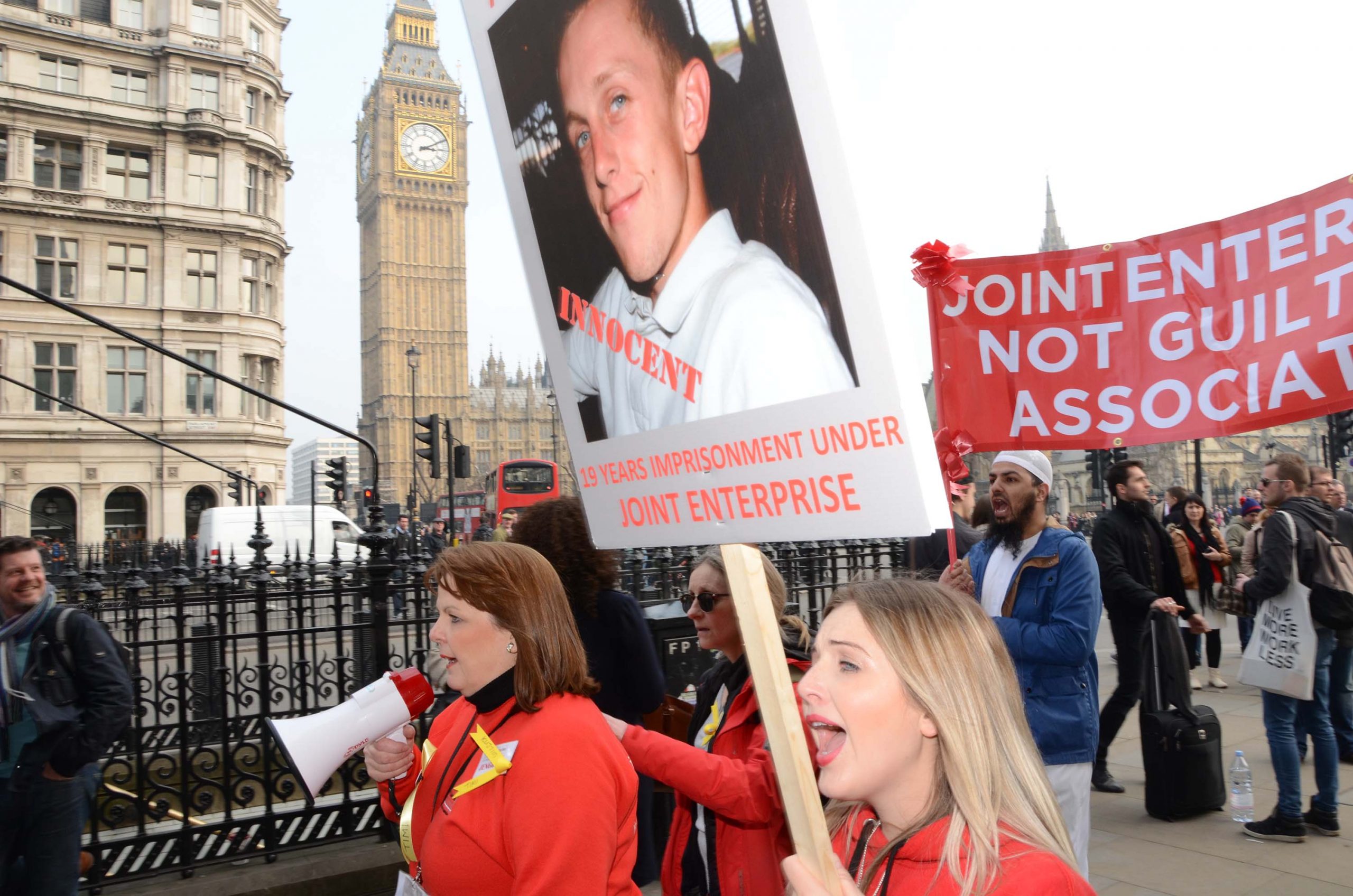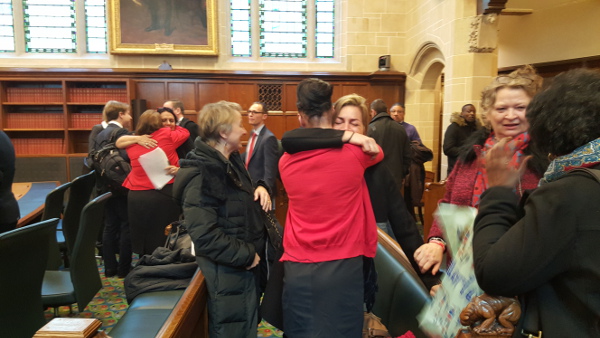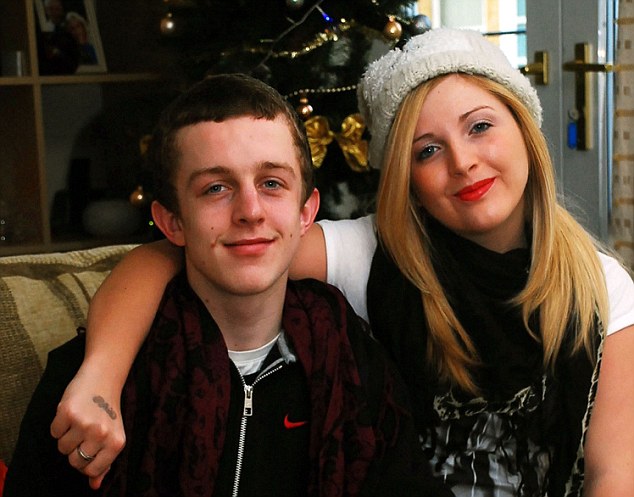In the waiting room for Justice
Later today Parliament will hold a three-hour debate on the controversial common law doctrine joint enterprise. The same day that my son, Alex Henry, lodges his appeal with the European Court of Human Rights.
For nearly a decade a bunch of angry women have been making a noise outside courts and prisons because their children, brothers, sisters, partners were wrongfully imprisoned under this law. More and more families, barristers and academic allies have joined the growing army of JENGbA (Joint Enterprise Not Guilty by Association) families. In 2012 a report following a Justice Select Committee enquiry recommended that joint enterprise be enshrined in legislation.
In 2016 JENGbA intervened in the case of R v Jogee and made history at the Supreme Court. A gasp was heard as the judgment was handed down pronouncing that for the last 30 years our courts ‘had got it wrong’ but dismissed the idea that it should be left to Parliament to put right, instead relying on the judiciary. Jogee was found not guilty of murder and received a shorter sentence for manslaughter.
JENGbA waited to see the ripples of the post-Jogee affect.
But nothing happened. All appeals have since been refused and all 650 prisoners supported by JENGbA, some aged just 13, have been left to languish in prison with no hope of early parole. It is estimated there are approximately 4,500 men, women and children mostly from the BAME community serving long sentences under joint enterprise, usually life, for crimes they did not commit. This number continues to increase month on month with a recent surge in the number of child lifers.

Sally Halsall with her son Alex
I first came across JENGbA five years ago after I googled ‘joint enterprise’. In 2013 Croydon Police rang me and told me they had arrested my son for murder. The custody sergeant put me through to Alex and he was screaming over and over: ‘Mum, I didn’t do it.’ I will never forget those sounds, sheer terror, like I have never heard and the worst pain I have ever felt. From that day on my life was changed forever. I promised him that I would get him home and that it was some terrible mistake.
The trial started in February 2014 at the Old Bailey and lasted six weeks. His friend changed his plea to guilty and admitted both stabbings. I cried with joy, after all the jury would know now wouldn’t they? But I listened with horror as the prosecutor weaved his stories to persuade the jury that Alex was ‘that kind of boy’ who knew exactly what would happen because ‘friends tell each other everything’. It felt surreal, as if I were surrounded by actors who were playing a game with my son’s life.
When the foreman of the jury said ‘guilty’ everything sounded muffled. I kept repeating to my daughter Charlotte over and over again: ‘What did they say?’ Yet I had heard because I could hear my own wailing, my pulse in my ears, like I was drowning and falling. I could not move. I could not breathe and all the time I could hear screaming from another mother and feel the hands of security guards who were trying to remove me.
On that fateful day – August 6th, 2013 – Alex and his three friends (Younis Tayyib, Janhelle Grant-Murray and Cameron Ferguson) were shopping in Ealing Broadway. Janhelle and Younis separated and walked a short distance to Younis’ address where Janhelle was confronted by a group of four older boys (Bourhane Khezihi, Taqui Khezihi, Dapo Tijani and Leon Thompson). The groups were strangers to each other.
Meanwhile Alex and Cameron were making their way up to Younis’ address. Alex became aware that Janhelle, 19, was in an altercation with a group of older boys. By this point Bourhane had removed his belt to use the metal buckle as a weapon and Janhelle had taken a bottle of wine from the local Cost-Cutters and was holding it down by his side.
Alex ran to Janhelle’s defence with Cameron running roughly 5 metres behind him. As he got to the scene he saw Taqui punching Janhelle repeatedly. Alex picked up Janhelle’s mobile (that had fallen from his pocket) and threw it at Taqui striking him on the top of his head. Bourhane punched Janhelle once and used his belt as a weapon, lacerating Cameron’s ear. Alex punched Bourhane once and Younis actively tried to prevent the violence.
The violence lasted under 40 seconds and in that time Cameron had put his hand inside his JD sports bag and held a knife. He never took the knife out of the bag and it was concealed at all times. He used the knife to stab both Taqui and Bourhane before fleeing the scene. The evidence emerged that no one present during the fight including Bourhane himself had realised there had been a stabbing. All the boys dispersed before Dapo informed Bourhane that it looked like he had a scratch on his back. Tragically, Taqui later died of his injuries. There was no evidence against Alex except for his presence.
In March 2014 the judge sentenced Alex to 19 years as a secondary offender, which means he did not commit the fatal act, but his presence alone meant that he received a life sentence. Like all adults sentenced under Joint Enterprise, Alex received a minimum mandatory sentence which means he will serve every single one of those years before he gets parole, and then only if he shows remorse for a crime he didn’t commit.

Charlotte Henry, Alex’s sister, campaigning with JENGbA
And so the wait for justice began. In December 2014 our first application for leave (permission) to appeal was refused and we had only one more opportunity to apply. Like many defence teams ours decided to wait for the Supreme Court to hand down the judgment in the case of R v Jogee. The Supreme Court ruled that joint enterprise had been wrongly interpreted which meant the evidential bar for guilt had been set too low. It had convicted bystanders (secondary offenders) based on whether the jury were convinced that this person ‘foresaw’ that the primary defendant (killer) might commit the act. The might was now ‘would’.
The evidence for the foresight element has always been based on inferences (i.e., friendship and often mere presence alone) because in the absence of hard evidence it is usually what the prosecution weave stories around. The prosecution will use the friendship between the co-defendants and insinuate a meeting of minds that whatever one may think the other does too. This low evidential bar is a gift for the prosecution and in the absence of the need to also prove the defendant’s own intention, means they rely heavily on skills of storytelling while defence barristers are faced with a charge which is impossible to defend. Further to that, by permitting jurors to rely upon this evidence the judiciary in their wisdom, allow Lurking Doubt to be the fundamentals in their convictions.
The change in the law of joint enterprise raised the hopes of thousands of prisoners. But the Supreme Court’s decision was criticised for potentially opening the floodgates for prisoners who would try to appeal based on the ground that, had they been originally convicted under the ‘post-Jogee’ law, they might not have been found guilty. Most prisoners have served several years of life sentences, some handed down to them as children, and as most had not appealed within the timeframe allowed they are therefore regarded as ‘out of time’.
The Supreme Court judgment in the Jogee case stated that only those convicted ‘post-Jogee’ would be tried under the new law. All others currently rotting away in prison would not automatically gain permission to appeal because ‘the law got it wrong for 30 years’, rather as ‘out of time’ applicants they would first need to pass the ‘substantial injustice’ test applied by the Appeal Court to assess the safety of a conviction following a change in the law.

The JENGbA families at the Jogee ruling in the Supreme Court in February 2016
In November 2016 the first 13 ‘test’ cases applied for permission to appeal and all 13 were dismissed by the appeal court. We were devastated. The Appeal Court stated that none of the cases had passed the substantial injustice test. This meant that for all these ‘out of time’ cases it was the end of the road as permission to appeal to a higher court, i.e. the Supreme Court, is only possible if you have been granted an appeal in the first place.
JENGbA fought to get clarification over what the ‘substantial injustice’ test was. Conventionally, statute law applies the ‘safety test’ which asks whether someone might have been found not guilty had they been on trial under the new law rather than the former law. However, following the Supreme Court judgment and to prevent an influx of appeals, the Appeal Court applied a different test with a threshold that no-one could pass as it asks if someone would have been found not guilty under the post-Jogee law. Further to this no-one can challenge this test under a ‘right to a fair trial’ because to be able to do so you would first need to pass the test.
Not only had the Appeal Court prevented the application of ‘post Jogee’ law it also emerged that the change in the law was not what it appeared to be; the Supreme Court had given with one hand and taken away with another. Even though the foresight element no longer existed, a person’s mere presence alone (and sometimes not even that) could still be inferred as intention for the other person to commit the fatal injury. And so we were back to inferential evidence again ‘a knowing look’ or in Alex’s case ‘best friends tell each other everything’. It seemed nothing had changed.
However, Alex’s case was different because while we were waiting for his appeal Alex was diagnosed with Autism. The eminent Professor Simon Baron-Cohen, acted as expert witness and working pro-bono throughout, prepared detailed reports to submit for Alex’s appeal. We thought surely this would prove that Alex could not predict the actions or thoughts of another? How could they keep my vulnerable son in prison for something he did not do?
After three years of waiting, on June 14 and 15 last year, Alex’s leave to Appeal was heard at the Royal Courts of Justice in a ‘rolled up’ hearing. This meant we would only be informed retrospectively in the final judgment, if leave to appeal had been refused or granted and if it had been granted, we would be told the hearing would be treated as an appeal.
I was full of hope that we would get an appeal. There was no doubt we had a strong case, after all our expert witness was the leading expert on autism in the UK and there had been a change in the law on Joint Enterprise. Our legal team were arguing for a retrial or if not, a reduction to the charge of manslaughter. Leading up to the hearing I tried desperately to manage all our expectations. I could not bear more years of trauma as we fought and lost and all the time missing him, not being able to care for him or hear his voice calling ‘mum’, wondering if he was frightened or cried or went hungry. I could not face such a massive loss again, but that would not happen this time. In my mind I already had him home.
The hearing started and as the prosecutor did not call his own expert witness I assumed this was a sign of defeat. Nevertheless, with apparent free reign throughout, the prosecutor made highly insulting and personal attacks during his cross-examination of Professor Baron-Cohen. He presented a smug précis of Alex’s psychological issues, using cod psychology to attack the credibility and relevance of the evidence presented by Professor Baron-Cohen and argued that my own PhD was used to coach my son to fake autism and dupe our expert witness (who I had never met previously).
Sitting in the public gallery, unable to defend myself, I have never felt so angry in my life, watching as the judges condoned this bad behaviour, determined to make us squirm like worms.
On 11th August the judgment was handed down, together with the cases McGill and Hewitt (brothers, Corey and Andrew) who were just 13 and 14 at the time. All the cases were joint enterprise involving autism and learning disabilities and like most cases they were ‘out of time’. Some 15 minutes before we entered the court to hear the judgment we were informed our appeal had failed on all grounds. None of the cases had been granted an appeal and all had failed the substantial injustice test.
To return to the Supreme Court would offer the opportunity to ensure that part of the law, which allows injustice to seep through, is fixed. But the test of substantial injustice prevents an applicant’s right to a fair hearing and further, due to jurisdiction issues, the ability to challenge this test at the Supreme Court. In short, the Court of Appeal do not want their homework marked by the higher court and will ensure that Jogee had the last crumb from their table. So far, they have ensured the door is firmly shut for appeals in cases of joint enterprise.
I am haunted by images of my son being hung because I know if we had the death penalty in this country Alex would be another Derek Bentley. Bentley was also found guilty of murder by joint enterprise and in 1953 he was hung in Wandsworth Prison aged just 19. Bentley had a learning disability with a mental age of 11. He was sentenced to death for being present at the scene of a burglary when his co-defendant, Christopher Craig, shot a Police Officer and Bentley’s cry of ‘let him have it’ was fatally and deliberately misinterpreted by the prosecution. The similarities are a shocking reminder that despite a public campaign by Bentley’s sister resulting in his posthumous pardon 45 years later, the UK Justice System did not learn from this terrible mistake.
At Christmas I visited Alex at his CAT A prison with my daughter Charlotte. Usually Alex is not allowed to leave his seat but today was different as we were having a photo taken together in front of a large painting on the wall at the other side of the hall. After the photo while walking back across the visit hall Charlotte linked her arm affectionately through her brother’s and put her head on his shoulder and for a brief moment she looked happy, like she forgot, until she sat on her fixed seat opposite Alex and she had tears running down her face. Then we joked and laughed and had lots of hugs.
Charlotte is four years older than Alex who is now 25 and like me she was fiercely protective of him. When I split up from their father they were just seven and 11 and they clung to each other like lifebuoys. Like me she always felt he was vulnerable, seeking help for him but never finding it. We couldn’t communicate with him and he felt like he didn’t fit in which was not surprising considering he was excluded by his school when he was just 11 and now by society for the next 15 years. But one thing we have learned is that anger is a good thing, it inspires us, drives us and while we have fight left in us we also have hope. We will not be quiet while we wait, we will stand up for justice and create a substantial noise.
Following, the judgment by the Appeal court the barristers, who had represented Alex pro bono, decided they could not take his case any further. We now have a new legal team. Charlotte has now qualified as a lawyer and says she will dedicate her life to getting justice for Alex.






